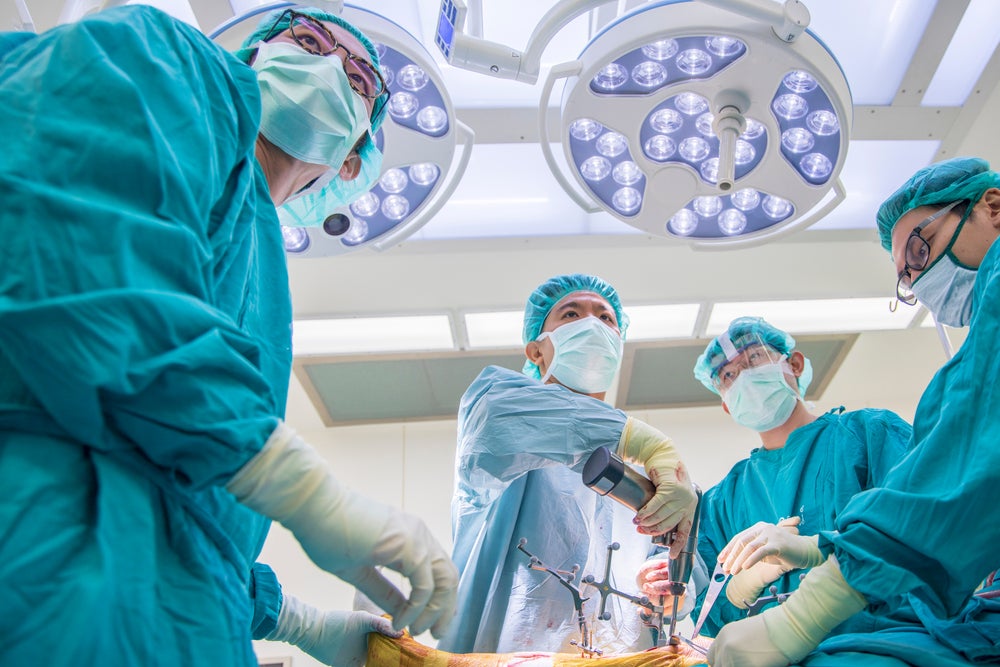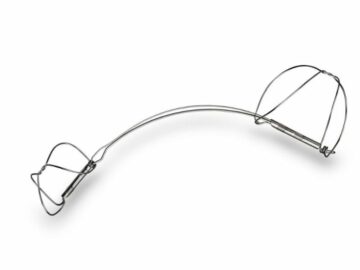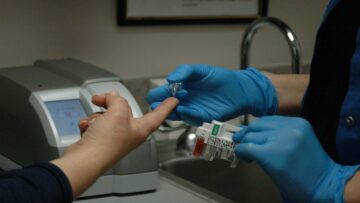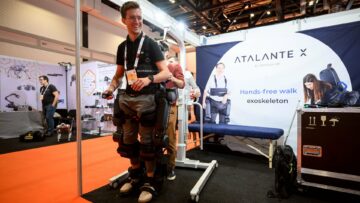<!–
–>

Neurosurgeons will now have access to Zeta Surgical’s “GPS-like” cranial guidance technology during brain surgery, after the US Food and Drug Administration (FDA) cleared the company’s surgical navigation system.
The cranial navigation system uses mixed reality to provide neurosurgeons with millimetric accuracy during cranial surgeries. The platform’s computer vision engine registers multiple times a second to maintain guidance accuracy, even in the presence of patient movement.
The platform, which can be deployed inside and outside the operating room, also uses artificial intelligence (AI). The Boston, US-based company says the technology eliminates the need for general anaesthesia and rigid skill immobilisation.
Surgical navigation is one of the fastest growing segments in the medical device market, with companies increasingly turning towards virtual or mixed reality to assist surgeons. The space is seeing large investment too – Sirius Medical closed a $13m Series B round in March 2023 for its GPSDetect navigational system. The surgical navigation space is also home to one of the most utilised applications of AI in healthcare – AI surgery software developer Proprio raised $43m last month to help roll out its light-field technology 3D surgical navigation platform.
Dr William Gormley, chief medical officer of Zeta Surgical and Harvard Medical School Associate Professor said in a statement: “The FDA’s market clearance of the Zeta Navigation system ushers in the next generation of innovation to neurosurgery. Like all paradigm changing innovations, Zeta will change the way we conceive of where we can perform neurosurgery within our hospitals and where in the world these hospitals can be.”
Dr Matthew McGirt, Professor of Neurosurgery at Atrium Health-Wake Forest in North Carolina, US, added: “Not only can the Zeta platform be used to navigate the most complex cranial surgeries, but it can also enable more routine cranial surgeries to be done in lower cost settings outside of a traditional OR without the need for general anesthesia.”
- SEO Powered Content & PR Distribution. Get Amplified Today.
- PlatoData.Network Vertical Generative Ai. Empower Yourself. Access Here.
- PlatoAiStream. Web3 Intelligence. Knowledge Amplified. Access Here.
- PlatoESG. Automotive / EVs, Carbon, CleanTech, Energy, Environment, Solar, Waste Management. Access Here.
- PlatoHealth. Biotech and Clinical Trials Intelligence. Access Here.
- ChartPrime. Elevate your Trading Game with ChartPrime. Access Here.
- BlockOffsets. Modernizing Environmental Offset Ownership. Access Here.
- Source: https://www.medicaldevice-network.com/news/fda-greenlights-zeta-surgicals-mixed-reality-cranial-surgical-platform/
- :is
- :where
- 3d
- a
- access
- accuracy
- added
- administration
- After
- AI
- AI in Healthcare
- All
- also
- and
- anesthesia
- applications
- artificial
- artificial intelligence
- Artificial intelligence (AI)
- assist
- Associate
- At
- Atrium
- b
- BE
- boston
- Brain
- but
- CAN
- Carolina
- change
- changing
- chief
- clearance
- closed
- Companies
- company
- Company’s
- complex
- computer
- Computer Vision
- Cost
- credit
- deployed
- Developer
- device
- done
- drug
- during
- eliminates
- enable
- Engine
- Even
- fastest
- fastest growing
- fda
- food
- Food and Drug Administration
- Food and Drug Administration (FDA)
- For
- forest
- General
- generation
- Growing
- guidance
- harvard
- Have
- healthcare
- help
- Home
- hospitals
- HTTPS
- image
- in
- increasingly
- Innovation
- innovations
- inside
- Intelligence
- investment
- IT
- ITS
- jpg
- large
- Last
- like
- lower
- maintain
- March
- Market
- matthew
- medical
- medical device
- mixed
- mixed reality
- more
- most
- movement
- multiple
- Navigate
- Navigation
- Need
- neurosurgery
- next
- North
- north carolina
- now
- of
- Officer
- ONE
- only
- operating
- or
- our
- out
- outside
- paradigm
- patient
- perform
- platform
- Platforms
- plato
- Plato Data Intelligence
- PlatoData
- presence
- Professor
- provide
- raised
- Reality
- registers
- rigid
- Roll
- Room
- round
- routine
- Said
- says
- School
- Second
- seeing
- segments
- Series
- Series B
- settings
- Share
- skill
- Software
- Space
- Statement
- Surgery
- surgical
- system
- Technology
- The
- the world
- These
- this
- times
- to
- too
- towards
- traditional
- Turning
- us
- US Food
- used
- uses
- Virtual
- vision
- Way..
- we
- which
- will
- william
- with
- within
- without
- world
- zephyrnet
- Zeta












